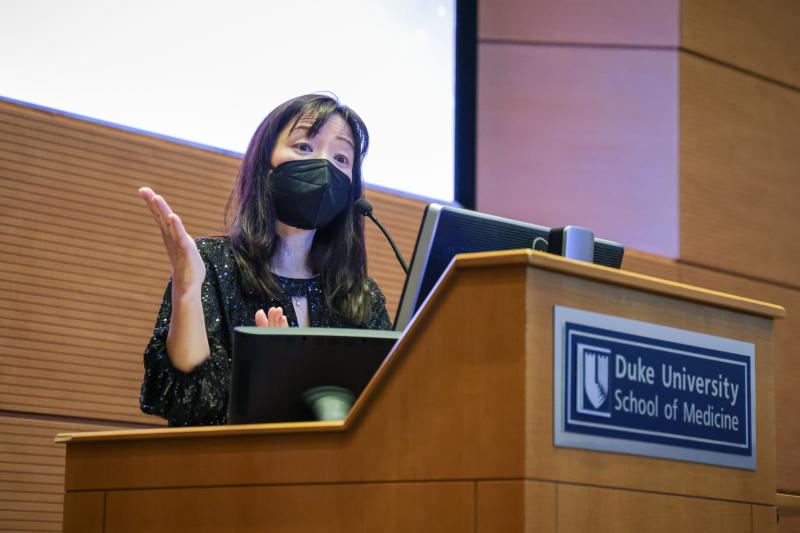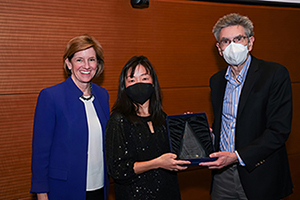
Long COVID, which affects 65 million people worldwide, appears to be not one disease but different collections of symptoms all precipitated by an acute COVID infection, said Akiko Iwasaki, PhD, director of the Center for Infection & Immunity at Yale School of Medicine.
“We hope to classify long COVID into different types to correctly diagnose and treat these patients. We haven’t solved the problem, but we are beginning to understand it,” said Iwasaki, who gave the annual Robert J. Lefkowitz, MD, Distinguished Lecture Feb. 13 at Duke University School of Medicine.
Hear More From Iwasaki: Watch the recorded livestream.
Iwasaki said her recent findings provide evidence for four possible root causes of long COVID and other complex, chronic syndromes that happen after acute infections:
-
Viral reservoirs of the infecting virus inside organs
-
Autoimmune disease triggered by the acute infection
-
Tissue damage and dysfunction
-
Reactivation of latent viruses, such as Epstein Barr Virus.
“Ninety-five percent of us sitting right here have latent EBV inside their bodies,” she said. For most people it stays dormant, but early studies suggest that mild, acute COVID-19 may reactivate it in some people and lead to one type of long COVID.
Iwasaki’s lab has found that in a subset of long COVID sufferers, hormones are dysregulated, and cortisol levels are low. In addition, there are clear sex differences in symptoms and in levels of immune markers.
She collaborates with physicians to conduct long COVID clinical trials aimed at finding out if subsets of patients will respond better to specific treatments, such as immune targeted therapies, anti-inflammatory agents, or anti-viral drugs, and to discover reliable biomarkers that could be used to predict response to treatment.

“These trials are not expected to cure everybody, but it’s a learning process for the community about who gets better, and can we use the right biomarkers to recruit those who will have improvement on these different types of therapies,” she said.
“Another lesson I’m learning is to listen to the patients and learn from the patients because they know best. This is a theme that runs through all our clinical studies,” she said.
The annual Robert J. Lefkowitz, MD, Distinguished Lecture, established in 2014, honors Nobel Prize winner and Duke professor of medicine Bob Lefkowitz, MD. It recognizes acclaimed researchers who impact science and serve as exemplary mentors to the next generation of scientists.
In opening remarks, Mary E. Klotman, MD, executive vice president for health affairs and dean of the School of Medicine, highlighted Lefkowitz’s 50-year career at Duke. “Bob has had an extraordinary impact on the trajectory of Duke,” she said.
Photos by Colin Huth.